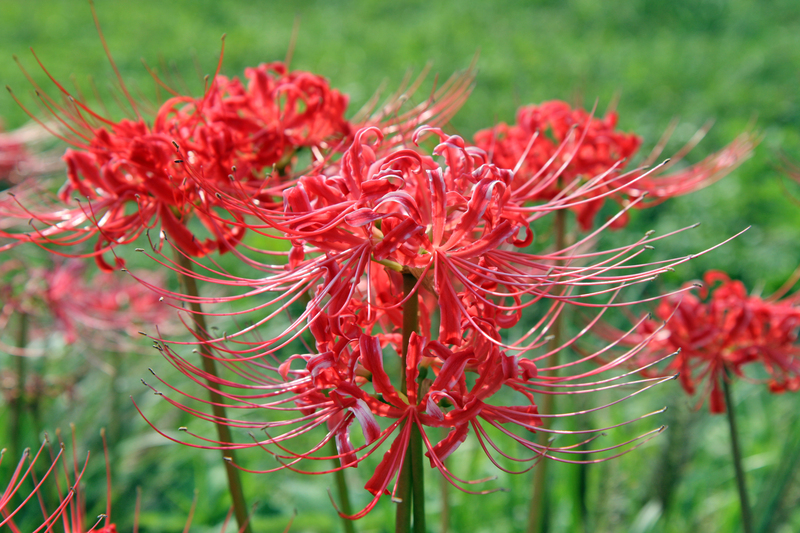Effective Home Air-Cleaning Plants
Posted on 21/08/2024
Indoor air quality is a vital aspect of home health and well-being, especially for those who live in urban environments or suffer from respiratory issues. One of the simplest, most natural ways to improve indoor air quality is by incorporating air-cleaning plants into your home. These plants not only add to the aesthetic appeal of your living space but also help remove toxins and purify the air. In this article, we'll explore some of the most effective home air-cleaning plants, their benefits, care tips, pros and cons, and key takeaways.
1. Spider Plant (Chlorophytum comosum)
The Spider Plant is a popular choice for improving indoor air quality. It effectively removes toxins such as formaldehyde, xylene, and toluene from the air. Spider Plants are resilient and easy to care for, making them perfect for novice plant owners.
- Benefits: Low maintenance, non-toxic to pets, helps reduce allergens
- Care Tips: Water moderately, keep in indirect sunlight

2. Snake Plant (Sansevieria trifasciata)
Also known as Mother-in-Law's Tongue, the Snake Plant is a robust and hardy option that can thrive in various light conditions. It's particularly effective at filtering out formaldehyde, benzene, trichloroethylene, and xylene.
- Benefits: Low maintenance, requires less water
- Care Tips: Water occasionally, can tolerate low light
3. Peace Lily (Spathiphyllum)
The Peace Lily is not only beautiful but also a powerful air purifier. It effectively removes pollutants like ammonia, benzene, formaldehyde, and trichloroethylene from the air.
- Benefits: Attractive flowers, efficient air-cleaning
- Care Tips: Keep soil moist, prefers moderate to low sunlight
4. Boston Fern (Nephrolepis exaltata)
Boston Ferns are known for their excellent air-purifying capabilities. They are particularly good at removing formaldehyde and can help maintain humidity levels in your home.
- Benefits: Improves air humidity, effective in removing formaldehyde
- Care Tips: Keep soil damp, prefers indirect sunlight and high humidity
5. Aloe Vera (Aloe barbadensis miller)
Aloe Vera is a versatile plant that has both medicinal properties and air-purifying abilities. It helps remove formaldehyde and benzene while also providing soothing aloe gel for skin ailments.
- Benefits: Medicinal properties, easy to grow
- Care Tips: Water sparingly, prefers bright indirect sunlight
Pros and Cons of Air-Cleaning Plants
Incorporating air-cleaning plants into your home has its set of advantages and disadvantages.
- Pros:
- Natural air purification
- Increased humidity
- Improved aesthetic appeal
- Psychological benefits like reduced stress
- Cons:
- Potential for mold growth if overwatered
- Some plants may be toxic to pets
- Requires regular maintenance
Tips for Maximizing the Benefits
- Choose plants that suit your lifestyle and home environment.
- Group plants together to create a micro-environment.
- Regularly clean the leaves to ensure they can efficiently absorb toxins.
- Rotate plants occasionally to ensure even growth.
- Avoid overwatering to prevent mold and root rot.

Key Takeaways
- Air-cleaning plants are a natural, cost-effective way to improve indoor air quality.
- Various plants target different toxins, so a variety is beneficial.
- Regular maintenance is key to maximizing the benefits of your air-cleaning plants.
Conclusion
Effective home air-cleaning plants are more than just decorative elements; they are powerful allies in the quest for healthier indoor air. By choosing the right plants and properly caring for them, you can enjoy cleaner air, improved humidity, and even enhanced emotional well-being. Although they require some maintenance, the benefits far outweigh the drawbacks. Start with a few low-maintenance options like the Spider Plant or Snake Plant, and gradually expand your indoor jungle to enjoy the full range of air-purifying benefits.
Latest Posts
Easy Ways to Freshen Up Your Patio and Paving for Summer
Unique Autumn Garden Inspiration: Planting with the Season in Mind
Quick and Effective Ways to Sharpen Your Garden Shears at Home
Easy Ways to Keep Your Artificial Turf Looking Brand New
Elevate Tranquility With These Zen Garden Planting Inspirations






 Certified and experienced landscapers
Certified and experienced landscapers



 Get a Quote
Get a Quote